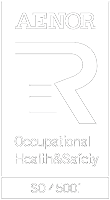Is the word “Approved” now outmoded?
Years ago, when the writer was “but a lad” life was much simpler and there was a clear distinction between “Approved” and “Certified”
Previously the difference between certification and approval was that certification is the act of certifying (attest or confirm in a formal statement) while approval is an expression granting permission; an indication of agreement that a product meets requirements. Approval can be an agreement given verbally or in writing, whereas certification is always given in writing.
In this context, ‘approval’ might be seen as more subjective, whereas ‘certification’ is intended to be fully objective.
Nowadays there is very much a move away from “approval” and “approval certificates” to “conformity assessment and certification.” leading to a lot of confusion and misunderstanding.
It is because of this lack of understanding that the many erroneous claims of “approved” products abound. The market is open for people to claim “Approval” or that they are “Approved” without certification simply because someone happened to purchase and use their product – “well they bought or buy it, so that must mean that we are approved.”
A product approval can be granted in isolation without any assessment of the management system under which it was manufactured, whereas certification usually includes a conformity assessment of the management system.
Back in the 70’s when BASEC, the then British Approvals Service for Electric Cables, was established the term ‘approval’ was widely used and understood.
However times change, this was prior to the current processes being formalised, standardised, and becoming officially accredited. Bodies such as BSI (British Standards Institution) now carry out conformity assessment and award certification, issuing certificates. The correct term for the conformity assessment of products and processes nowadays is ‘certification’. Some bodies still use the terms “type approvals” and “technical approvals” but backed up by certification of the product or processes.
Types of approval and certification
We must not forget that there are different types of approval and certification
1st Party
ISO defines first party as a “conformity assessment activity that is performed by the person or organization that provides the object”. Put simply self-declaration.
2nd Party
ISO defines as a “conformity assessment activity that is performed by a person or organization that has a user interest in the object”. Put simply a customer audit.
3rd Party
ISO defines third party as a “conformity assessment activity that is performed by a person or body that is independent of the person or organization that provides the object, and of the user interests in that object”.
Also in ISO-speak, the word “certification” means: third party attestation related to products, processes, systems or persons.
For these reasons a simple product audit or conformity assessment carried out by an independent person or body is to be preferred if an unbiased independent conclusion as to the products or systems compliance with the applicable standard is required.
Accreditation vs Certification
The terms accreditation and certification are often used interchangeably and occasionally together. Despite the obvious confusion this can cause, the difference between the two distinct quality management processes can be easily explained.
Certification represents a written assurance by a third party of the conformity of a product, process or service to specified requirements.
Accreditation, on the other hand, is the formal recognition by an authoritative body of the competence to work to specified standards.
There are two applicable ISO standards covering this topic:
- ISO/IEC 17065 Conformity assessment — Requirements for bodies certifying products, processes and services
- ISO/IEC 17021 Conformity assessment — Requirements for bodies providing audit and certification of management systems
Note that the generic term for the overall process is now ‘conformity assessment’.
In the UK the Approval or Certification body must be certified by UKAS
Tratos has received BSI approval for the Environmental Policy ISO-14001 and Health & Safety management systems in respect of the activities in the design, manufacture and supply of a wide range of cables. Each of the Tratos manufacturing plants operates Quality Management Systems (ISO 9001) regularly audited and certified by BSI.
Finally a FAQ
Why do Standards not state that the product or process must be subject to Third Party Approval?
As explained by ISO (but this is also true of other Standards bodies) there is an IMPORTANT PRINCIPLE: “This is because ISO itself has something called the “neutrality principle” and this principle states that ISO is agnostic when it comes to third party certification or accreditation. Because there are expenses and other considerations associated with third party certification or accreditation, ISO wanted its standards to be available for use at any level, even if the only level the organization could meet was to “strive” to meet the standard and to assess themselves against the standard. So ISO would not ever state that a product or process has to be certified or accredited by a third party
I am indebted to Jeremy Hodge of the BCA and Jon Murthy, UKAS Marketing Manager for a lot of this information.









